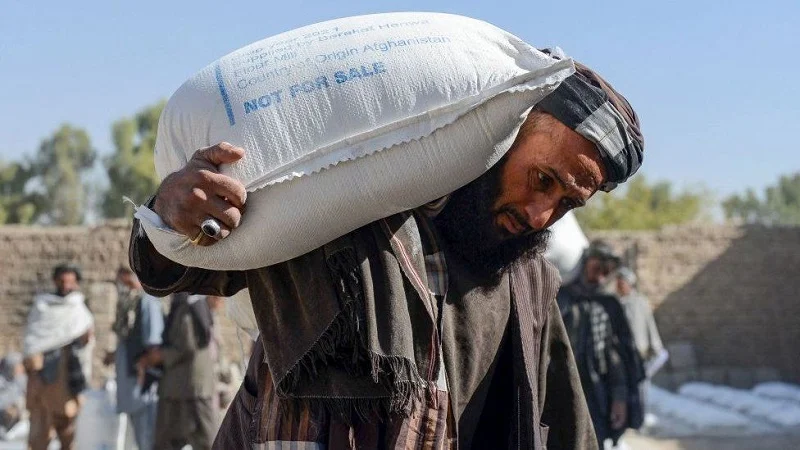The World Bank (WB) announced more than $1 billion in humanitarian aid for Afghanistan, stating the money will go to UN agencies and international NGOs, while remaining “outside the control” of the country’s Taliban rulers.
The reallocation from the Afghanistan Reconstruction Trust Fund (ARTF) follows the $280 million in ARTF funds disbursed last December and is aimed at supporting the humanitarian response over the critical winter months.
The funds, to be delivered in the form of grants , aim “to support the delivery of essential basic services, protect vulnerable sects of Afghanistan, help preserve human capital and key economic and social services and reduce the need for humanitarian assistance in the future,” the Washington-based lender said in a statement.
Read More: Pakistan Embassy in Kabul offers free computer courses for Afghan students
The bank suspended its aid to Kabul late last August after the Taliban swept back into power.
ARTF is a multi-donor fund that coordinates international aid to improve the lives of millions of Afghans. It is administered by the World Bank on behalf of the donor partners.
Until the Taliban took over, the ARTF was the largest source of development funding for Afghanistan, financing up to 30 percent of the government’s budget. Because the World Bank is unable to provide money directly to the Taliban regime, which is not recognised by the international community, it has redirected the funds to organisations such as UN children’s agency Unicef in response to the humanitarian crisis.
Afghanistan’s population has faced food shortages and mounting poverty since the Taliban took over. The objective of the new aid is to “protect vulnerable Afghans (and) help preserve human capital and key economic and social services,” the World Bank said.
In December last year, Prime Minister Imran Khan had called for devising an immediate medium- and long-term strategy to address the dire humanitarian situation in Afghanistan, warning any chaos there would not be in anybody’s interest.
Addressing the inaugural session of the 17th extraordinary session of the Organisation of Islamic Cooperation (OIC) Council of Foreign Ministers in Islamabad, the Imran Khan said that he was impressed with the Islamic Development Bank’s suggestions of medium- and long-term measures to help the Afghan people and make their economy sustainable.
The prime minister warned that Afghanistan is heading for chaos and the biggest man-made crisis was unfolding there which needs immediate action on behalf of the international community especially the OIC, the United Nations, the United States and the European Union.
Highlighting the collapsing hospitals, education sector, and the deteriorating humanitarian situation in Afghanistan, the prime minister called for the world to “take immediate action as Afghanistan is heading towards chaos.”
The prime minister said, ironically, Pakistan had hosted the OIC moot on Afghanistan 41 years ago as no country suffered from conflicts as much as Afghanistan. He said the situation in Afghanistan is also caused by years of a corrupt government, suspension of foreign aid, freezing of foreign assets and a dysfunctional banking system which can lead to the collapse of any state.
Afghanistan’s economic and humanitarian crisis has deepened since the Taliban took control in August 2021.
The Taliban’s latest announcement underlined the financial crisis engulfing the country. It could also raise questions among donors over the Taliban using humanitarian aid to fund their government, even as strict rules remain in place over money going into Afghanistan.
Still, some humanitarian aid has continued after the Taliban takeover as foreign governments attempt to prevent millions of people from starving. However, the aid is meant to bypass the Afghan government and is mostly distributed by UN agencies and international organisations.
In recent months, the country’s finances have been hit hard by a number of major issues such as sanctions being placed on members of the Taliban, the central bank’s assets being frozen, and the suspension of foreign aid, which until last year supported the economy.


